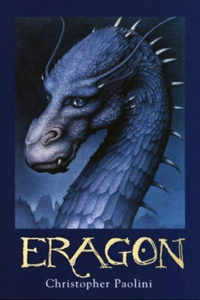
This review was written for Be The Star You Are! Charity and published on The Reading Tub.
The Amulet of Samarkand begins a terrific trilogy by master story-teller Jonathon Stroud. While the adventures, heists, and subterfuges are nothing to sneeze at, Stroud’s world-building kept this book fresh in my mind years after I finished it. Stroud sets his world in modern-day England, but this world has been shaped by magic over the millennia, making some fundamental differences. One poignant difference is that America never revolted against England, and England is poised to become the next hub of magical power and activity.
The book traces the story of Nathaniel, a talented but young and inexperienced magician, as he accidentally becomes intertwined in a plot to overtake the magical government. Rife with humans, spirits, and strife, Nathaniel works in an uneasy truce with an ancient djinni (magical spirit) that he summed named Bartimaeus, to survive while preventing a violent coup. The adventure is high stakes, and the cards seem stacked against the two. Twelve-year-old Nathaniel would not stand a chance against his enemies without his quick mind and powerful servant-turned-friend Bartimaeus.
A delightful voice for the book comes from the irascible Bartimaeus, who tells many chapters of this story with a sense for sarcasm and wry wit. Not the smartest spirit, nor the strongest, Bartimaeus leverages his resourcefulness and luck to narrowly escape the tightest situations. With 5,000 years of experience to rely on, he often compares His new master Nathaniel to his old master, Ptolemy. Stroud uses this tell two stories in one book; an outline of his time with Ptolemy accompanies the riveting story of Nathaniel.
An excellent gift for any middle schooler or early high schooler, this book deserves five stars of five stars. Fans of fiction and fantasy will head straight to the library to read the other three books in the series after reading this first book.
If you liked The Amulet of Samarkand, you may enjoy P.B. Kerr’s Children of the Lamp series (two middle-school children discover that they are Genies, and have adventures), T.A. Barron’s The Lost Years of Merlin (the ultimate prequels to any King Arthur books), or Orson Scott Card’s Ender’s Game series (in a dystopian future, young children are recruited to the military to eliminate an alien threat).
Recommended Titles:
Children of the Lamp, P.B. Kerr
The Lost Years of Merlin, T.A. Barron
Ender’s Game, Orson Scott Card

This review was written for Be The Star You Are! Charity and published on The Reading Tub.
The Amulet of Samarkand begins a terrific trilogy by master story-teller Jonathon Stroud. While the adventures, heists, and subterfuges are nothing to sneeze at, Stroud’s world-building kept this book fresh in my mind years after I finished it. Stroud sets his world in modern-day England, but this world has been shaped by magic over the millennia, making some fundamental differences. One poignant difference is that America never revolted against England, and England is poised to become the next hub of magical power and activity.
The book traces the story of Nathaniel, a talented but young and inexperienced magician, as he accidentally becomes intertwined in a plot to overtake the magical government. Rife with humans, spirits, and strife, Nathaniel works in an uneasy truce with an ancient djinni (magical spirit) that he summed named Bartimaeus, to survive while preventing a violent coup. The adventure is high stakes, and the cards seem stacked against the two. Twelve-year-old Nathaniel would not stand a chance against his enemies without his quick mind and powerful servant-turned-friend Bartimaeus.
A delightful voice for the book comes from the irascible Bartimaeus, who tells many chapters of this story with a sense for sarcasm and wry wit. Not the smartest spirit, nor the strongest, Bartimaeus leverages his resourcefulness and luck to narrowly escape the tightest situations. With 5,000 years of experience to rely on, he often compares His new master Nathaniel to his old master, Ptolemy. Stroud uses this tell two stories in one book; an outline of his time with Ptolemy accompanies the riveting story of Nathaniel.
An excellent gift for any middle schooler or early high schooler, this book deserves five stars of five stars. Fans of fiction and fantasy will head straight to the library to read the other three books in the series after reading this first book.
If you liked The Amulet of Samarkand, you may enjoy P.B. Kerr’s Children of the Lamp series (two middle-school children discover that they are Genies, and have adventures), T.A. Barron’s The Lost Years of Merlin (the ultimate prequels to any King Arthur books), or Orson Scott Card’s Ender’s Game series (in a dystopian future, young children are recruited to the military to eliminate an alien threat).
Recommended Titles:
Children of the Lamp, P.B. Kerr
The Lost Years of Merlin, T.A. Barron
Ender’s Game, Orson Scott Card


